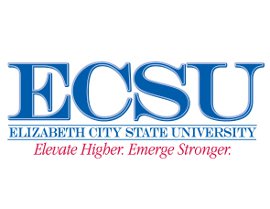Expansion is no longer the answer to improving the Australian education system

This article was written by Dean Ashenden, University of Melbourne
For 50 years, Australia’s policymakers have been persuaded that growth at every level of the education system would be a good thing in itself – and would drive economic growth and social progress.
That faith is now under unprecedented pressure.
While massive expansion has brought the benefits of education to millions, it has also created new problems, and left old ones unresolved.
Human capital theory
Belief in the power of education to lift lives and societies is hardly new. But “human capital theory” gave it a new form.
Developed by a small group of US economists in the late 1950s, human capital theory arrived in Australia via the OECD in 1964, when L. H. Martin became the first in a long line of Australian policymakers to argue that education was not a necessary expense but an investment.
Investment in education would make individuals and economies more productive, triggering a virtuous circle of economic growth, more equal opportunity, higher levels of health and civic-mindedness, and cultural enrichment. The economic rain would follow the educational plough.
It followed (as one Australian human capital theorist argued) that,
“education spending should be expanded up to the point where the rate of return to additional spending is equal to the general rate of return on capital”.
Anything less will reduce the rate of economic growth and result in “a culturally impoverished and less cohesive society”.
In the meantime, education pays for itself (as another theorist put it) “many times over”.
Promise and performance
Governments have certainly done as advised.
In just two generations they have tripled the proportion of students completing 12 years of schooling, expanded numbers in vocational education and training (VET) from a few tens of thousands to around 1.5 million, and multiplied higher education numbers by thirteen.
But 50 years on it is clear the benefits of vastly expanded access to education are heavily offset in ways scarcely anticipated by the human capital argument:
- Despite claims that education pays for itself, the chronic problem of funding it has recently become acute, pushing minister Pyne from his portfolio, and his government toward a near-death electoral experience.
- Even the OECD, the leading apostle of human capital theory, concedes that “over-education” is relatively pronounced in Australia. Employment and salary returns to degree and diploma programs have fallen steadily, while at the lowest qualification levels returns are negligible or even negative. On the other side of the transaction, employers continue to complain about the employability and “job readiness” of graduates
- Despite more years of schooling by many more people, a persistently large minority of students is “disengaged”, and an even larger proportion of adults lacks the skills “to meet the demands of everyday life and work”.
- Research dominates the universities and they dominate the system as a whole. The universities have been allowed to pursue their own interests at the expense of teaching, and to undertake increasing amounts of educational work for which neither they nor their students are well equipped. Their dominance extends to the purposes and curriculum of schooling, and contributes to the perception of VET – under-funded and beset by scandal – as an educational last resort.
- There have been few or no gains in the social distribution of opportunity in and through education. It seems likely that structural inequality – the distance between the best and worst educated, and the distribution of the population across that spectrum – has increased.
- Growth has been in time served as well as numbers enrolled, causing costs for young people to rise as returns fall. They spend a steadily increasing proportion of their lives in a limbo between childhood and fully adult circumstances and responsibilities in pursuit of employment which may or may not materialise.
Growth still the solution?
There are those who argue or assume that growth should still be the first objective of policy.
The most recent substantial review of higher education, for example, relied on human capital theory to argue for a much-expanded, demand-driven system.
Deloitte Access Economics prosecutes the same case, claiming not just a long list of social, health and other benefits for expansion, but an 8.5% increase in GDP “because of the impact that a university education has had on the productivity”.
Australia’s most successful federal minister of education, John Dawkins, recently called for a comprehensive rethink, but with funding for further growth as the central question, a view apparently shared by the Grattan Institute.
The guns of policy are pointing in the wrong direction. We need a re-orientation for the next 50 years as substantial as that introduced by Martin 50 years ago.
A different orientation for public policy
The first question for policy should not be the size of the system or its funding but its disposition, character, and consequences:
- Policy has concentrated on the supply of skills and knowledge; it should now concentrate on their use and development in the workplace.
- The effort to load up individuals with economically useful skills and knowledge via front-end, formal education should give way to expanding career and training paths and work-based learning across the broadest possible range of industries and occupations, including most of the professions.
- The focus on the social distribution of education should be widened to tackle structural inequality. Policy must be directed less toward opportunity to get the best, and more toward providing the highest possible proportion of the population with the best possible educational experience and attainment.
- The priority currently given to the top half of the system and to those who do well at school and go on to higher education should be given to those for whom education is a bad experience with bad consequences.
- Policy should above all stop equating human capital with the consumption of formal education. That conflation has allowed occupational groups, including particularly the professions and those aspiring to professional status, to combine with education providers to use credentials to drive up amounts of education consumed. Educational provision should be seen within the larger frame of learning and its recognition, irrespective of where, when or how undertaken, but particularly learning and its use in workplaces.
It is possible to detect the beginnings of such a re-orientation in some of the areas discussed; in others, it is not.
Learning the lessons of experience
Although human capital theory has gone largely unchallenged in policy debates, among economists it has been as much criticised and rejected as accepted.
Even those who work within the human capital framework often distance themselves from the growth argument appealed to by governments and others.
The rise of human capital theory from one among several accounts of the education-economy relationship to conventional wisdom owes as much to its political usefulness to governments and to the education industry as to its merits.
There is much more to the complex interaction of education and learning (on the one hand) and economic activity (on the other) than human capital theory comprehends, including particularly competition for economic advantage through education by occupational groups and by families and individuals.
There is also much more to education than its contribution to economic activity.
Martin depended upon a theory. Now we have experience. If the lessons of the past 50 years are to be learned, policymakers will need a much broader course of instruction than can be provided by human capital theory.
![]()
Dean Ashenden, Honorary Senior Fellow, Melbourne Graduate School of Education, University of Melbourne
This article was originally published on The Conversation. Read the original article.






